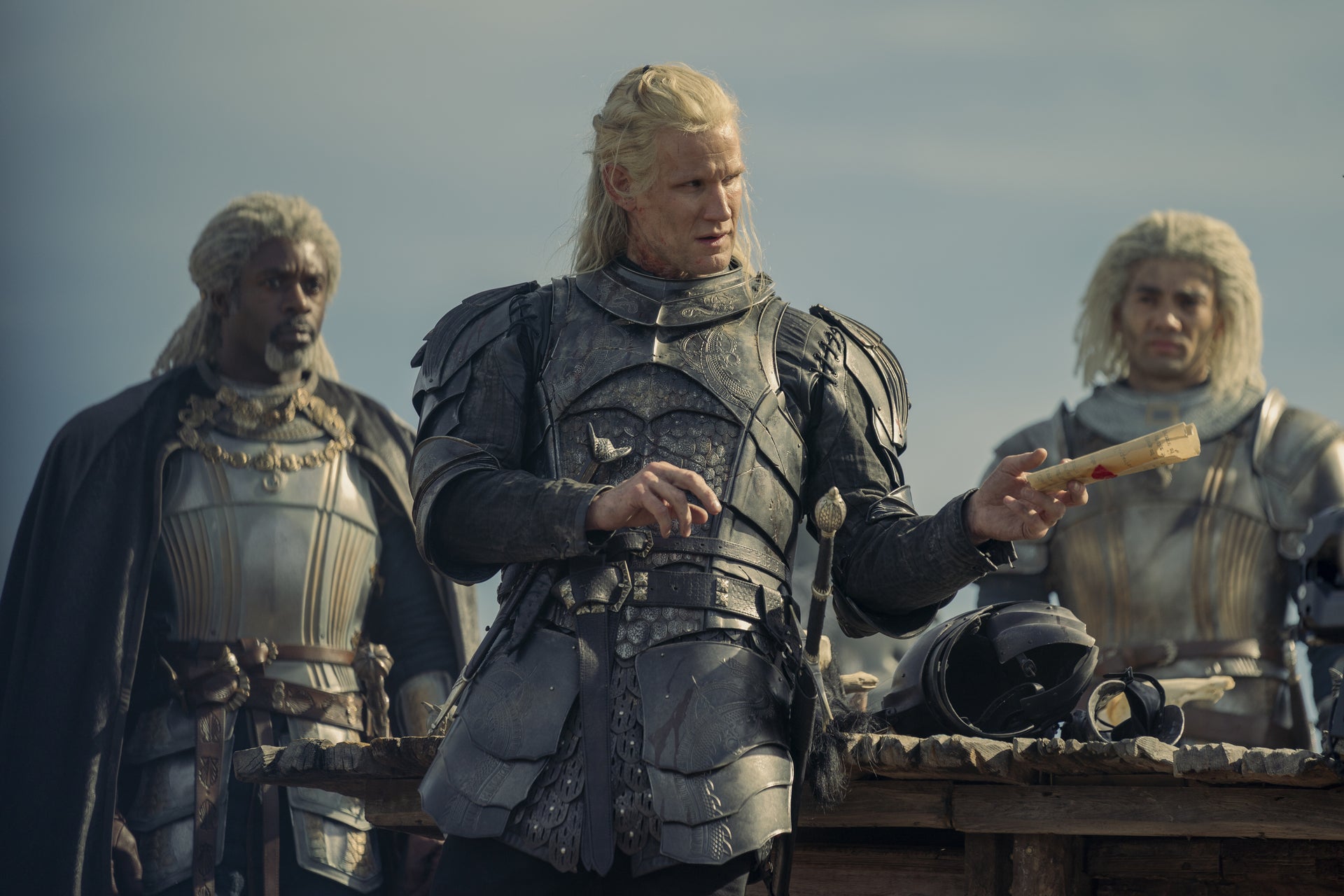Why did House of the Dragon ever want us to doubt just how evil Daemon is?
There’s no shortage of villains in Westeros, writes Amanda Whiting. What makes Daemon stand out most is occasional goodness


Your support helps us to tell the story
From reproductive rights to climate change to Big Tech, The Independent is on the ground when the story is developing. Whether it's investigating the financials of Elon Musk's pro-Trump PAC or producing our latest documentary, 'The A Word', which shines a light on the American women fighting for reproductive rights, we know how important it is to parse out the facts from the messaging.
At such a critical moment in US history, we need reporters on the ground. Your donation allows us to keep sending journalists to speak to both sides of the story.
The Independent is trusted by Americans across the entire political spectrum. And unlike many other quality news outlets, we choose not to lock Americans out of our reporting and analysis with paywalls. We believe quality journalism should be available to everyone, paid for by those who can afford it.
Your support makes all the difference.When the newest episode of House of the Dragon opened, I was shocked to see a glimpse of greenery. We’ve spent so much of the show’s inaugural season in dusty King’s Landing, with only the War for the Stepstones’ grim seaside theatre as a visual reprieve. House of the Dragon is, so far, a show about power-mad blondes in their sepia-toned castle.
My relief was short-lived, of course. It quickly becomes clear that we’re in the Vale, home to Daemon’s neglected wife, Lady Rhea – or, as Daemon calls her in episode one, “my bronze bitch”. He greets her wordlessly from under a hooded cloak, looking more like Luke Skywalker in his soul-searching period than the hero who vanquished the Crabfeeder. Rhea taunts him: she’s not going to sleep with him, he’s been usurped by a teeny-tiny little girl, even his own brother hates him, etc. It’s unkind, but Daemon’s response is… disproportionate. He spooks Rhea’s horse, which throws her violently to the ground. When the fall doesn’t finish the job, he crushes his missus’s skull to death with a nearby stone.
It’s been tricky to pinpoint where Daemon Targaryen – The Crown’s Matt Smith hiding beneath a halo of milk-white hair – falls on the scale from a little bit sinister to pure evil. You could argue that other characters in HBO’s extravagant sequel to Game of Thrones – Daemon’s niece Rhaenyra, his brother King Viserys – have been behaving even worse. But after last night’s brutal murder, it’s hard to make the case that Daemon is a man burdened by conscience at all.
And yet just last week, we (almost) would have! After taking his niece Rhaenyra out for a night of drinking and debauchery, Daemon refuses to have sex with her – a move that could have served him no matter the consequences. If Viserys found out and forced them to wed, Daemon would be powerful by association with the queen. If news of their dalliance destroyed Rhaenyra’s reputation, he’d be one step closer to snatching the Iron Throne for himself. I realise I’m giving an adult man whose actual name is “daemon” a lot of credit for not sleeping with his own teenage relative, but that says more about Westeros than it does about me.
Listen, no one looks good when they’re playing the game of thrones. But it’s the manner of Rhea’s killing that pushes Daemon far past redeemability. Her death will be mistaken for a hunting accident, but there are lots of ways to make a murder look accidental. Daemon wants Rhea to know it was him. He wants the power of making her afraid. He even pauses long enough for her to realise why he’s there – to make room on his ring finger for his niece – before he attacks.
His villainy isn’t exactly surprising. We were exposed to his unchecked ego and hair trigger earlier in the season when he killed a king’s messenger because he didn’t like the message. But the more monstrous Daemon behaves, the more perplexing it is to me that the series ever attempted to depict him as somehow more complicated than a jealous little brother.
What does it matter that his incestuous affection for his niece is real if he’s also the guy who took her to a brothel and exposed her to ruin? What to make of his valiant last stand in the Stepstones, if he can kill his own wife without uttering a single word?
House of the Dragon is developing a bad habit of a certain kind of shallow storytelling. It raises big questions that the series doesn’t care to answer. Take sexism. The show doesn’t endorse misogyny, but it also doesn’t have much to say about it. Viewers are asked to swim in its toxicity simply because it serves the plot.

Similarly, what does it mean in House of the Dragon that someone as evil as Daemon isn’t purely, 100 per cent evil? If he can still kill an innocent person in a manner that maximises fear and suffering, my guess is that it doesn’t mean much.
At least by the end of episode five, we can stop wondering about Daemon’s softer side – a sociopathic wife-murderer who was sometimes a good uncle is still just a sociopathic wife-murderer. But what can it portend for the fate of the realm that he’s still – somehow – one of House of the Dragon’s most likeable characters?



Join our commenting forum
Join thought-provoking conversations, follow other Independent readers and see their replies
Comments